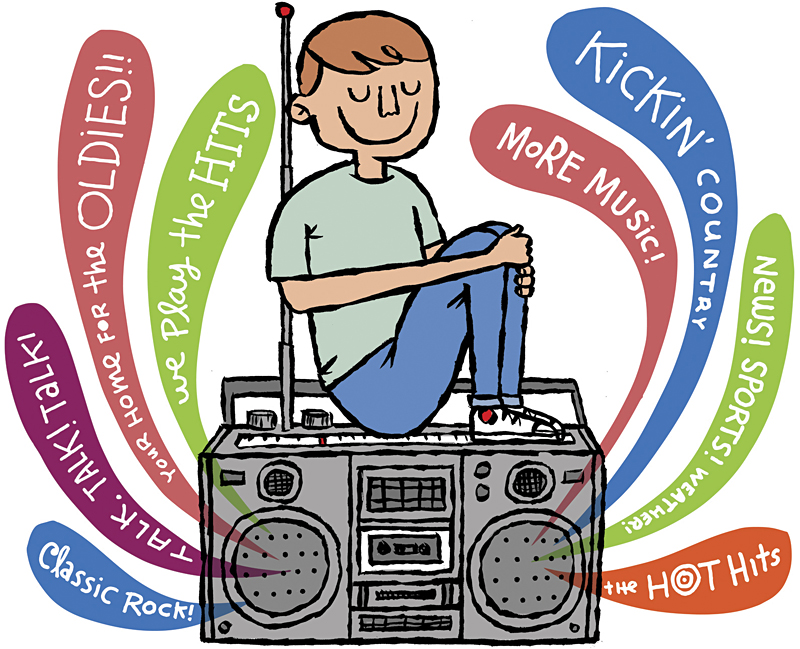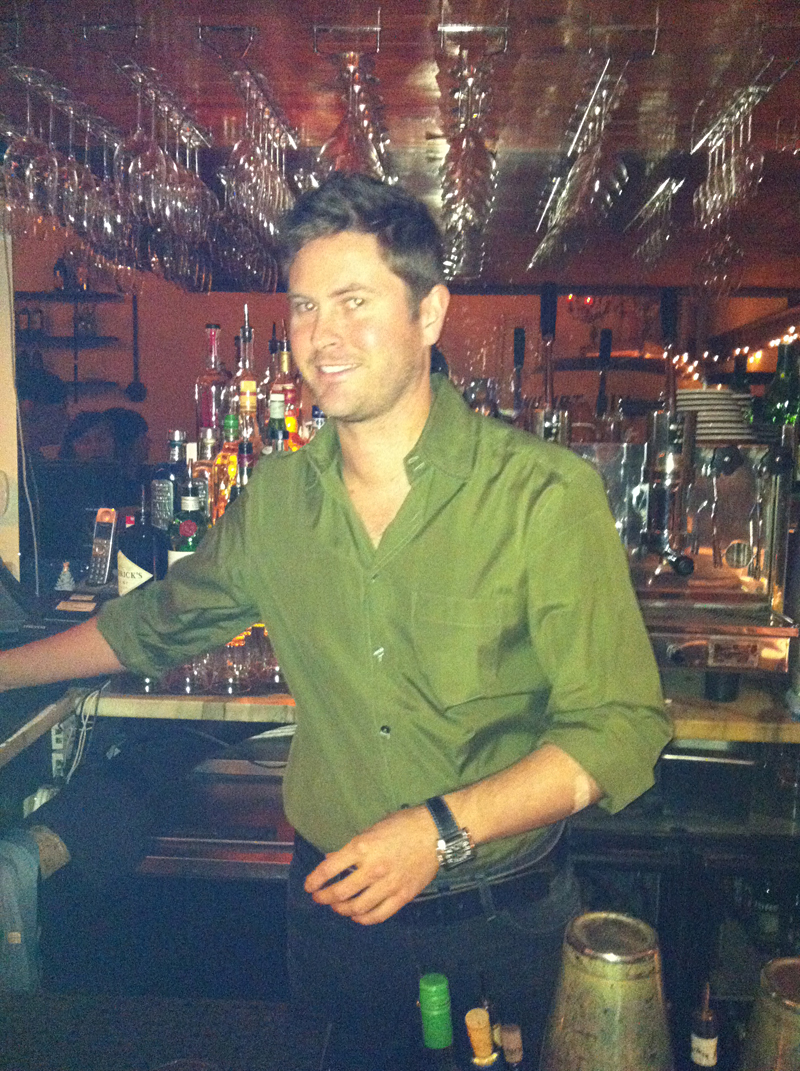When the Make-a-Wish foundation asked Noah Long what wish they could help him fulfill, his reply was instantaneous: Fly to Seattle to meet producer Josh Klein and the staff of ReelWorld, a company that produces jingles, the short bits for radio that run between shows and identify stations.
“I was surprised by the request,” Make-a-Wish volunteer Alyssa Chrobuck says. “I hadn’t even heard of the company.”
Although travel from Long’s North Carolina home was more difficult because of his cerebral palsy, epilepsy, and blindness, the 18-year-old jingle aficionado wouldn’t entertain the idea of visiting any other jingle company, even though a major competitor, Dallas’ TM Studios, is much closer to his home. “There was no question for Noah what his wish would be—he knew he wanted to meet these people,” Long’s grandmother, Joy Boyette, confided. “They’ve been wonderful.”
When Long arrived at ReelWorld in August, Craig Wallace, the company’s affiliate relations director, played a few seconds of a jingle on a computer and asked Long if he knew what city the jingle was used in. “Atlanta,” he replied, not missing a beat.
“Yep,” Wallace answered, and the two continued to playfully challenge each other: Wallace played clips, and Long rattled off the city and station associated with every jingle.
Long says he can memorize jingles after hearing them twice. “I love jingles because they identify something,” he says. “I’ll hear one I like, record it, play it back, and memorize it.”
Long’s fascination with ReelWorld began in 2007 when he discovered it was the company that produces the jingles for his local radio station in Raleigh. “I love how ReelWorld’s jingles sound because of the way they’re produced,” Long says. “The sounds are less human, more like something from outer space.”
In 2008, Long’s grandfather contacted ReelWorld’s director of sales, Mike Thomas, to see if the company would be willing to help Long create a jingle package—a set of sound clips—for his school’s radio station. Thomas put the family in touch with producer Klein, who worked with Long to create a custom package, free of charge.
“I’ve never had a fan before,” Klein says.
After that, Long continued to follow ReelWorld’s work, memorizing specific sets of jingles for radio stations in cities across the country, and recording his own vocals atop pieces of ReelWorld’s jingles. “I’m planning on launching my own radio station this year,” Long says. “It’s just a fake radio station, but I’m hoping it will air at my school so I can show everyone what I’ve been working on.”
Tucked upstairs in an unmarked former firehouse in Ballard, ReelWorld, founded in Seattle in 1995 by producers/composers Steve Thomas and Erik Huber, combines live vocals and instrumentals to create jingles, using the talents of moonlighting professional singers who can rely on jingle income to fill the monetary gaps left by the fickle entertainment industry.
“The purpose is to create a brand for the client so listeners can recognize the station just by the sound,” says Klein, who uses computer programs to manipulate the vocals from ReelWorld’s national team of singers and layer them with songs and sounds characteristic of the radio station the jingle is being created for.
“KUBE 93 is a rhythmic hit station and KBKS [aka 106.1 KISS FM] is mainstream,” says Eric Powers, program director at Clear Channel Broadcasting, one of ReelWorld’s many national clients. “ReelWorld makes imaging [radio lingo for sounds] that fits that.”
Powers explains that radio stations constantly need new jingles, because jingles that use songs from a year ago, or even a month ago, sound outdated. ReelWorld, he says, has gained a reputation as one of the leading national jingle producers because they make it easy for radio stations to stay current by providing them with monthly updates for their jingles, instead of producing one jingle and leaving it to the station to update it themselves. “ReelWorld’s sounds are high-quality and unique,” he says, “and they’re relentless in creating new sounds that are constantly innovative.”
Owner Steve Pigott, who ran Pure Tonic Media in the UK and became owner of ReelWorld after the two companies merged last March, attributes ReelWorld’s growing prosperity in part to its 2006 decision to provide this monthly jingle-update service. “We became a one-stop shop for jingles,” he says, “which is more efficient for the customer.”
Until about two years ago, ReelWorld had no more than seven employees in their office, and few global clients. Now, according to Thomas, the company has about 15 employees in the Ballard office and 50 around the world, with 1,500 global clients.
“This one station in Jakarta was the first automotive station, so I had to add car noises and screeches to every clip,” Klein says. “We also did a bunch of clips for a station in the Philippines that were really sappy and ballady—all about how they loved the station, not about how the listener would love it.”
Thomas points out in an e-mail that people still listen to radio, but spend less time doing so, making it more important for stations to make themselves memorable. “This is where we come in—we fuse the sonic brand of the station into the listener’s head,” he says, “so when they think radio . . . they think of their station.”






